It’s a tangled tale, and the victims have been sled dogs.
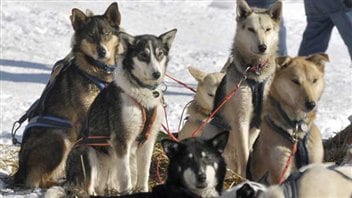
© CBC
While most sled dog tourist operations and individual sled racers, have been, and are, responsible owners when it comes to treatment of the animals, it’s not always the case.
It is not unknown that a small number of dog owners would “cull” their dogs at the end of the season, or when they aged and were no longer competitive.
This is because maintaining a team of dogs in the off season, is very expensive.
Now some 86 huskies and sled dogs which had been facing an uncertain future, have been rescued and need new homes. Something that is not entirely easy to do.
Marcie Moriarty is Chief Prevention and Enforcement Officer for the British Columbia SPCA (Society for Prevention of Cruelty to Animals)
ListenThis story begins in 2010 with a man named Bob Fawcett.
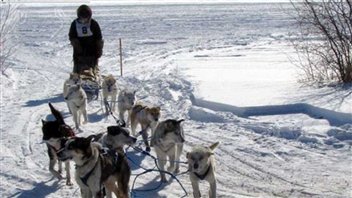
and may not be suited to urban life © CBC
His company provided sled dog rides to tourists during the 2010 Winter Olympics. When the games ended and tourists left, the business faltered. To cut costs, he slaughtered about 50 of his dogs. When this was discovered he was eventually convicted of animal cruelty.
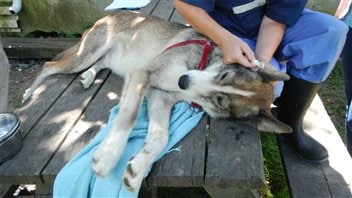
dogs have had inadequate care © BC SPCA
The public outcry also resulted in new legislation in the western province The Sled Dog Code of Practice. It sets standards for health, nutrition, housing, working conditions, transportation and euthanasia.
Fawcett’s remaining 187 dogs, went to another company, which also quickly folded and instead became a new company, Whistler Sled Dogs. It proposed running an ethical dog sledding operation in which care fo the dogs was a priority.
Now, after two seasons, that operation has given up saying a four month season is too short to financially provide for the proper care of the dogs during eight months of off-season.
Dozens of the animals have now ended up with Whistler Animals Galore, and the BC SPCA.
SPCA Chief Enforcement officer Marcie Moriarty says the company has ignored its responsibility toward the dogs. She says the new code calls for complete life-cycle care for the animals without shuffling them off to animal shelters.
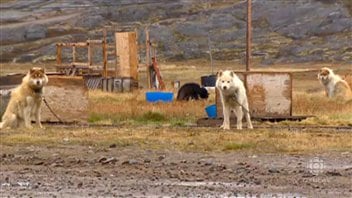
or noises, or even houses © CBC
These cases although rare, are not unknown. In 2008 a sled dog owner about 35km north of Mont Tremblant in Quebec, eventually turned over 100 dogs after SPCA visits. Officials say there had been complaints about lack of care for the dogs, inadequate food, water and shelter.
Ms Moriarty says finding new homes for the animals is not an easy task.
The problem is that huskies and working breeds are by nature very active and need lots of exercise, and as such are not often suited for urban environments or lifestyles. The additional problem is that these dogs have not been socialized and are not particularly used to city conditions or children or crowds of people.
Ms Moriarty the dogs would only make good pets for owners willing to invest the time to socialize them for city life, and that’s easier said than done.
WAG-Whistler Animals Galore Shelter
B.C. Sled Dog Code of Practice
British Columbia Society for the Prevention of Cruelty to Animals
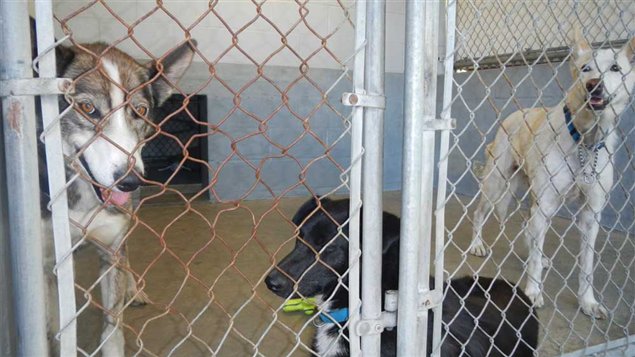






For reasons beyond our control, and for an undetermined period of time, our comment section is now closed. However, our social networks remain open to your contributions.